'Elephant Man' Joseph Merrick 'should be buried in Leicester'
- Published
Joseph Merrick's skeleton is kept in a glass cabinet at Queen Mary University of London's medical school
Researchers are calling for Joseph Merrick, known as the Elephant Man, to be given a Christian burial in his home city of Leicester.
They claim that while he agreed to be exhibited during his life, he "almost certainly" did not want his remains to be displayed after he died.
The Queen Mary University of London intends to keep his skeleton at its medical school.
It claims that Joseph Merrick "expected to be preserved after his death".
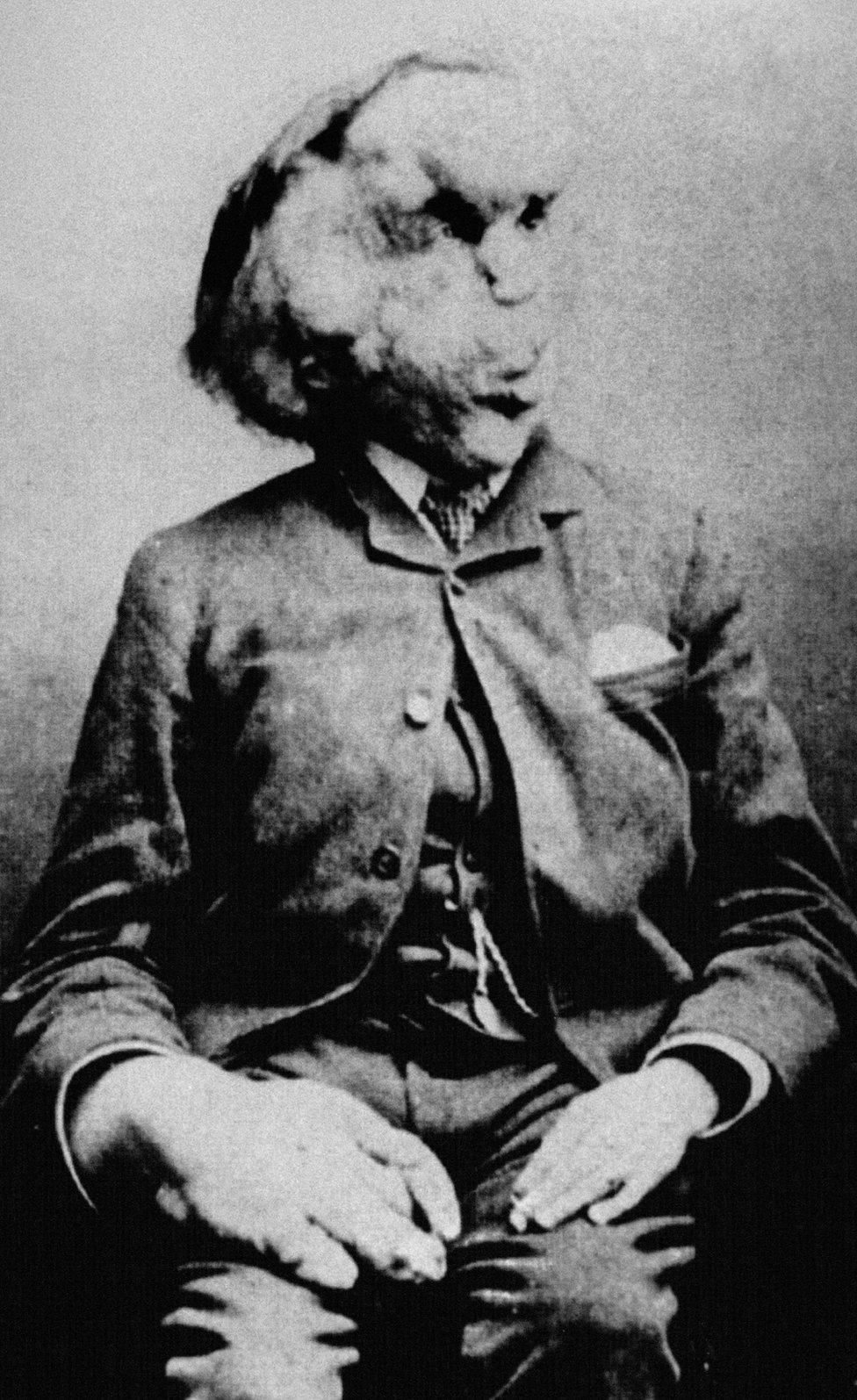
Joseph Merrick believed his deformities were caused by his mother being frightened by an elephant when she was pregnant
A university spokesman said as custodians of Mr Merrick's remains, the university regularly consulted with his descendants over their care.
He said the remains were kept in a private room and could only be viewed by medical professionals and students with the permission of the curator.
"Those viewing the skeleton are expected to consider Merrick's feelings and gain experience of the considerable challenges of living with his condition. These ethical and humanitarian considerations are an invaluable part of the learning experience for health workers during their training," the spokesman added.
Valerie Howkins, the granddaughter of Tom Norman, one of Mr Merrick's former managers, said the reburial of Richard III in Leicester had made her "doubly anxious" for Mr Merrick to be buried with dignity.
Updates on this story and more from Leicestershire
"There was just no question when he died that he would go back to Leicester to be buried," she said.
"It's just so sad that he had his flesh stripped from his bones and has been mounted in a glass cabinet for 120 years against his will.
"He was Christian and would have expected a Christian burial."

Preserved for 'medical education and research'
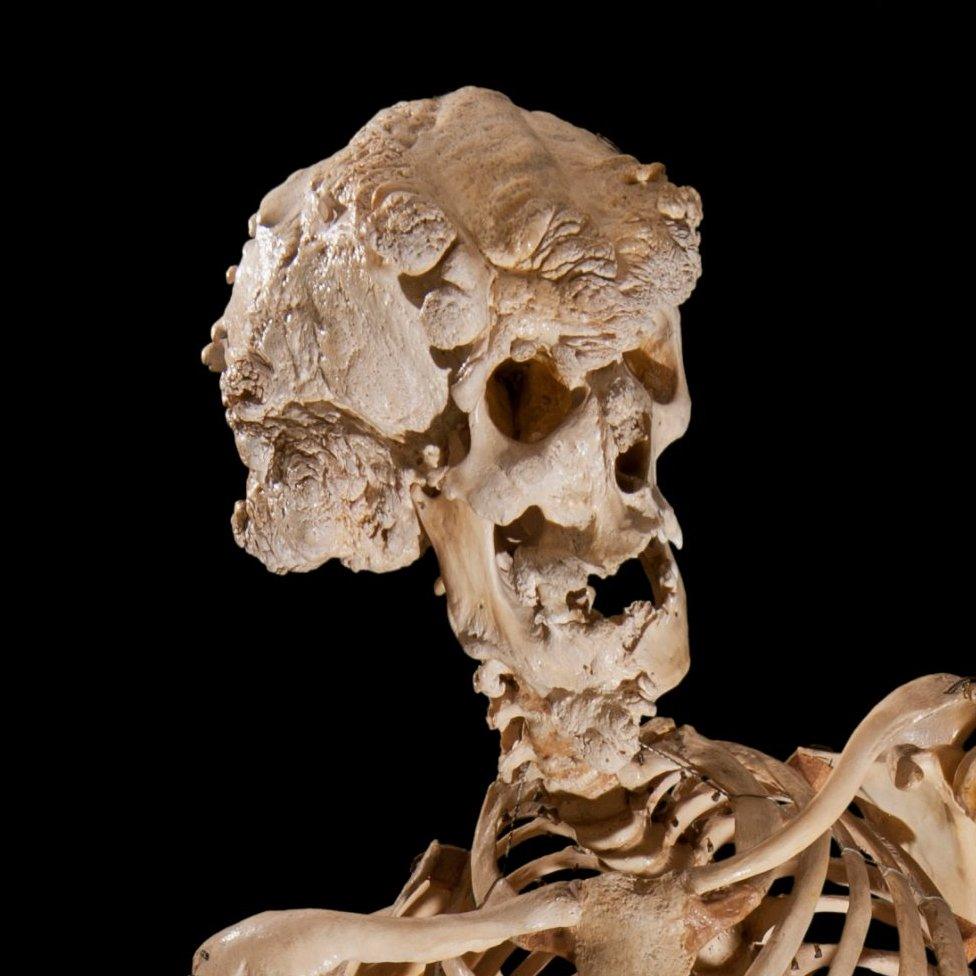
Joseph Merrick's skeleton is kept in a private room at Queen Mary University of London's medical school
The remains are not on display to the public but can be viewed by appointment, for example by medical students and medical professionals
The skeleton is displayed in a glass cabinet, which the university said is to "allow medical students to view and understand the physical deformities resulting from Joseph Merrick's condition"
A spokesperson for the university said: "It is understood that Joseph Merrick expected to be preserved after his death, with his remains available for medical education and research. As custodians of his remains, the university regularly consults with his descendants over their care."

Jeanette Sitton, who founded the Friends of Joseph Carey Merrick, also wants him to be buried in Leicester.
"As Joseph Merrick was a devout Christian we know for a fact he would have wanted to be laid to rest," she said.
"It's an almost certainty. We know he was a devout Christian and we know he did have a strong faith."
The friends group discovered the unmarked grave of Mr Merrick's mother and siblings in Leicester's Welford Road Cemetery a few years ago and put a plaque there.
However, Ms Sitton said this would not be an appropriate place for Mr Merrick to be buried due to the lack of security.
Ms Howkins said his "warm and loving" relationship with his mother made it even more appropriate for him to return to Leicester.
"He was born in Leicester and he had a wonderful relationship with his mother until he was nearly 11 years old and she died," she said.
"It's not right that his bones should be stuck in a box in a store room."
Mayor Sir Peter Soulsby has previously backed calls for a memorial to Mr Merrick in Leicester but the council said it is not its decision where or if his remains should be buried.
A spokeswoman said: "We have a memorial stone to Joseph Merrick in Welford Road cemetery, as well as a plaque commemorating his life at Moat Community College, on the site of the former workhouse where he lived.
"We are proud to acknowledge Merrick's connections to Leicester in this way, but the question of where his bones should be buried is a matter for the relevant parties."
- Published1 June 2015
.photocreditjoanmarcus.jpg)
- Published18 May 2015
.photocreditjoanmarcus.jpg)
- Published10 May 2014
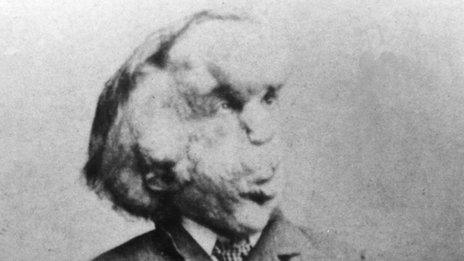
- Published5 January 2014
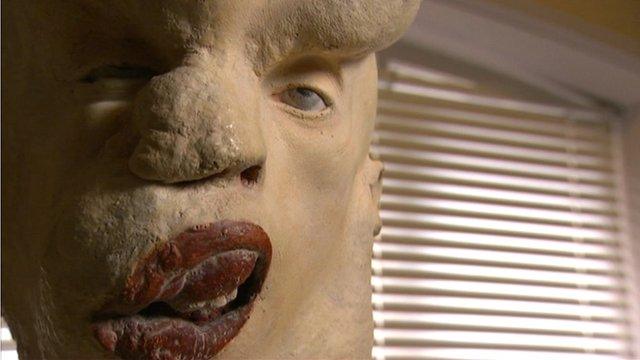
- Published29 August 2013
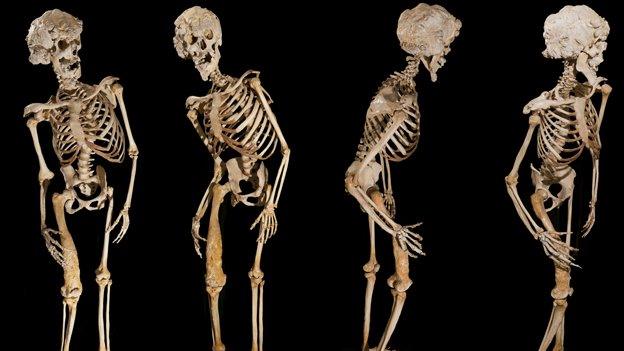
- Published7 May 2012
